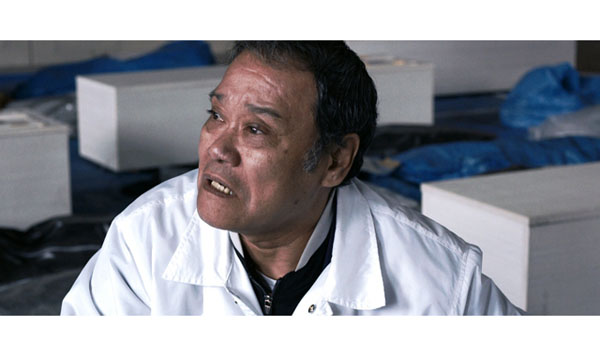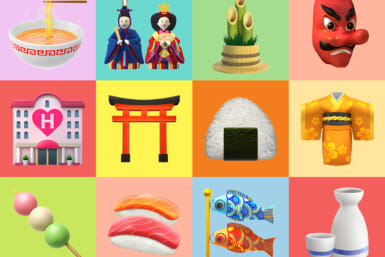Reunion (Itai: Asu e no tokakan) is an intense dramatization of efforts within a morgue after the 2011 tsunami, writes Christopher O’Keeffe.
Since the the disaster of March 11 2011 there has been a range of documentary’s made covering all aspects of the event and it’s aftermath.
Some titles with a more international reach include the Ridley Scott-produced Japan in a Day, a snapshot of people getting on with their lives after the tragedy, and the Oscar nominated short The Tsunami and the Cherry Blossom, which also looked at the healing process in the period after the event.
Having seen things unfold daily on the news I have felt very little desire to see a documentary on the subject, perhaps feeling that such a film can offer nothing new when the earthquake and its after-effects are visible everyday, or perhaps, like the subjects of some documentaries, its a case of moving on without looking back.
‘Itai’ is interesting as it’s a fictionalised account based on the incident, although it is very much grounded in reality and faithfully recreates environments from first hand accounts. A drama can often say much more than a documentary and create a more personal experience as the set of characters with their individual traits are more easily identifiable than with someone in a documentary, who we merely observe and view as someone other than ourself.
While dealing with how people cope with and move on from grief in the face of tragedy the film takes a direct look at the handling of the bodies of those who died in the tsunami in the Yamaishi area.
People’s reactions to the corpses, be they the bodies of relatives, friends or strangers, and to death when seeing it brutally close, forms a microcosm for Japan in general’s reaction to and acceptance of the terrible events.
During the days following the tsunami, Japanese news media declined to show any footage of dead bodies, surely a difficult decision but while it showed respect and compassion for those directly affected by the disaster, it lessoned the impact for those not witnessing events first hand, both inside and outside of the country.
‘Itai’ deals with this head-on, the director having stated that he was aware of this information gap and wanted to address it directly and as a result the film has an impact that news footage never could.
The film stars Toshiyuki Nishida, the popular star of the long running Tsuribaka Nisshi comedy series and recognisable to anyone in Japan for his TV appearances and ad work. Nishida’s character, Aiba, is established in the opening scenes as something of a leader, with an easy charm and charisma.
These qualities soon come to be relied upon after Aiba first visits the temporary morgue set up to take care of incoming bodies in the aftermath of the tsunami. As a former funeral home employee, he is shocked by the state of the operation and the inability to take care of the deceased, along with their grieving relatives, in an appropriate manner.
Aiba requests permission to stay and work at the temporary morgue and help get things in order, not just the bodies but also the city office workers who have no idea how to deal with the horror unfolding around them.
This is a difficult film to watch, but one which is certainly worthy of your time, the tone is fitting and the director shows impressive restraint by sticking to its matter-of-fact style without descending into unnecessary melodrama.
The absence of music for the majority of the film was a bold decision; Japanese dramas are often heavy handed with the soundtrack. The silence within the morgue punctuated only by the occasional police siren or the wail of a grief stricken visitor create an atmosphere of intense despair.
The dull shades and grey natural light only add to this feeling of doom, which can only gradually be lifted through the efforts of Aiba, the city workers, doctors and dentists who are present. For an intimate, personal depiction of the horrors of 3/11 this is an intense, moving account.
Reunion, by director Ryoichi Kimizuka, is on general release from February 23. (Japanese title: Itai: Asu e no tokakan)









